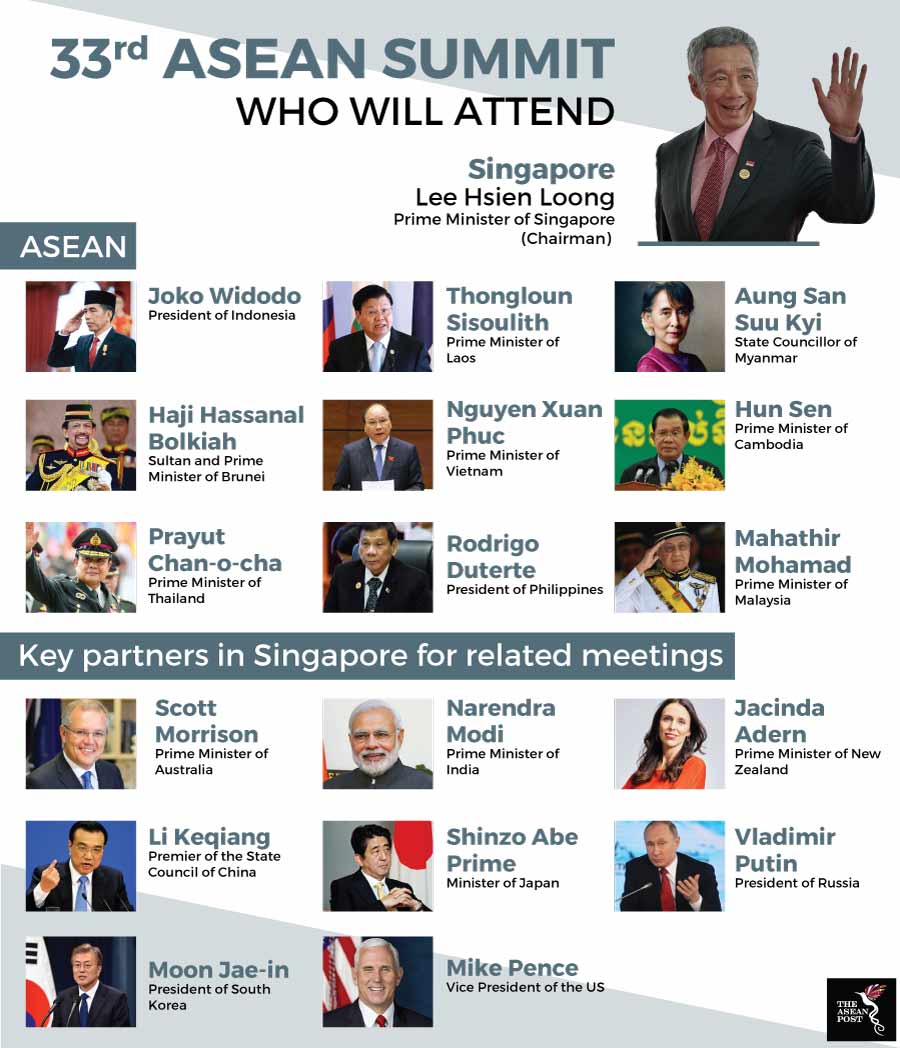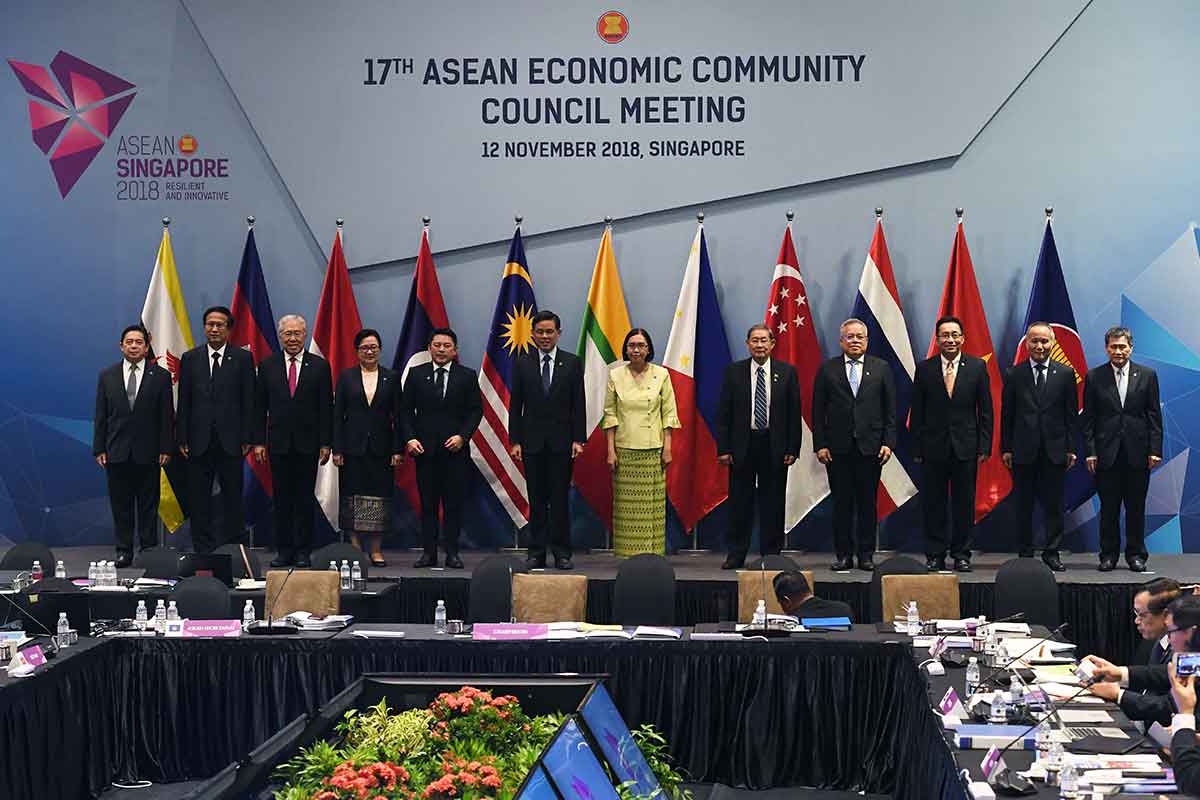It is that time of year again when leaders from all over the region congregate and discuss key issues facing the Association of Southeast Asian Nations (ASEAN). While the official opening of the 33rd ASEAN Summit is scheduled for tomorrow, the summit has been underway since 11 November. However, action and excitement are expected to grow tomorrow with the arrival of some big names such as Vladimir Putin, the President of Russia.
Ever since the last ASEAN summit, the region and the rest of the world has seen some major developments. Among the key developments witnessed in the region in the past six months are the deepening of the Rohingya crisis in Myanmar, growing uncertainty in global trade and increasing tensions in the South China Sea.
Call for cooperation
One of the bigger talking points for this week is expected to be regional cooperation in terms of trade. Many leaders are fearing that free trade could be under threat as the world’s largest economic power, the United States (US) is becoming more protectionist in its economic outlook; case in point being its intensifying trade war with China.
Speaking at the ASEAN Business and Investment Summit, Singapore Prime Minister Lee Hsien Loong set the tone for discussions this week, calling for economic cooperation and open markets. “The more integrated and open our markets are, and the more conducive our rules and business environments to foreign investment, the larger the pie will grow, and the more we will all benefit,” he said.
“ASEAN has great potential, but fully realising it depends on whether we choose to become more integrated, and work resolutely towards this goal in a world where multilateralism is fraying under political pressures.”
So far, the summit has already achieved meaningful results in line with Lee Hsien Loong’s call for cooperation. Just today, a deal was agreed during the ASEAN Economic Community (AEC) Council meeting. Chaired by Singapore’s Minister for Trade and Industry Chan Chun Sing and attended by his ASEAN counterparts, the meeting saw the ministers signing the ASEAN agreement on e-commerce which is expected to facilitate cross-border e-commerce transactions.
 Source: Various
Source: Various
East Asia Summit
In line with this rhetoric of free trade and economic cooperation, Singapore is expected to spearhead the Regional Comprehensive Economic Partnership (RCEP) at the summit too. The pact includes 16 countries, the 10 ASEAN member states as well as India, China, Japan, South Korea, Australia and New Zealand. The trade deal would involve 25 percent of the global gross domestic product (GDP), 45 percent of the world’s total population, 30 percent of global income and 30 percent of global trade.
Another thing to look forward to is the East Asia Summit happening concurrently with the ASEAN Summit. Attendees of the East Asia Summit will include all RCEP countries as well as Russia and the US. With these summits happening side-by-side, this year’s ASEAN Summit will be a star-studded affair with heads of state from India, China, Japan, South Korea, Australia, New Zealand and Russia slated to attend.
Some observers have been taken by surprise by Vladimir Putin’s decision to attend as he usually sends his prime minister or a minister to summits. Putin’s decision to attend reveals how important the Asia Pacific has become in terms of geopolitical importance. Some see Putin’s decision to head to Singapore for the first time as an attempt to gain favour with the region. A notable absentee however is US President Donald Trump, who will be represented by Vice President Mike Pence instead. Critics argue Trump’s decision to not attend the summit, while disappointing, is unsurprising considering his views on economic cooperation.
Aside from that, this week promises to be an action packed one. Also going on at the summit is the Working Lunch hosted by Prime Minister Lee for ASEAN leaders and guests of the ASEAN Chair as well as other related summits involving ASEAN ministers and delegates. At the closing ceremony, Lee Hsien Loong will formally hand over the ASEAN Chairmanship to the Prime Minister of Thailand, Prayut Chan-o-cha.
Related articles:
Regional trade deal to be concluded by November
Part 1: Understanding the ASEAN Summit
